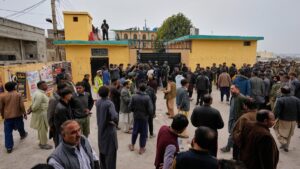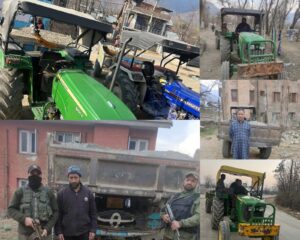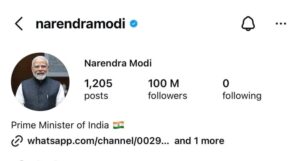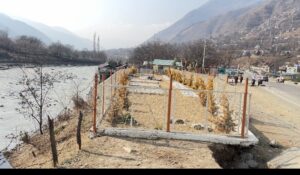Unlocking National Strength: The Power of Soft Power Strategies
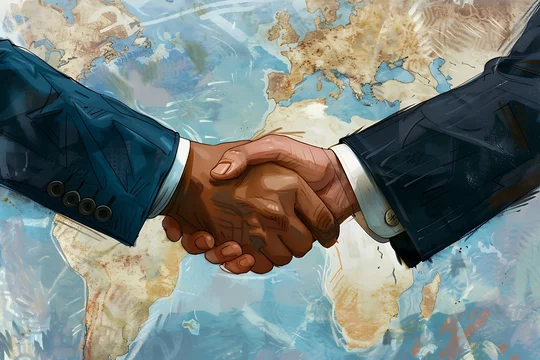
Farooq Ah Lone
In international relations power of a nation is defined as its ability to influence other nations to achieve its objectives of maximising security and national interest. A nation uses its power to influence its friends and enemies to force them to do something which they do not want to do at will. Without having power a nation is unable to achieve its national interests and is instead used by stronger powers which do not consider the national interest of other nations. So a country has no option but to increase its power in order to have a strong position in world politics and take care of its national interest by itself.
There are a number of ways how a nation can increase its power or national power. Increasing the military capabilities and strengthening of the economy have been historically recommended as good measures to increase power of a nation. While the military capabilities enable the nation to fight against its adversaries, economic power enables the nation to keep its population feeding and happy as wealth is necessary for buying consumption goods and other vital things. Economic power also enables the nation to be prepared for war as huge defense costs can only be met through a resilient economy. Moreover the military capabilities of a nation become more important for it if it is surrounded by hostile nations. This combination of military and economic strength of a nation is termed as hard power in international relations. It is both necessary and sufficient to ensure the survival and security of a nation. The more the hard power of a nation, the more difficult it becomes for outside powers to defeat it and intervene in its internal matters.
Besides hard power there is another way to increase power of a nation. Technology, diplomacy, culture, media etc. can all be used as tools to increase national power. Today’s era is the era of technology and innovation; the nations which develop in science and technology are becoming power hubs at global level. Modern life is dependent a lot on science and technology so the nations which shine in such fields develop a lot of diplomatic and political leverage over nations which lag in the same fields. Japan, South Korea, Taiwan etc. despite being small are best examples of technological power hubs.
Diplomacy is also a powerful weapon which can be used by a nation to increase its power. Diplomacy enables a nation to interact with other nations, start trade and cooperation with other nations and resolve conflicts if any. Due to diplomacy a nation also gets exposure of other nation’s culture and style of development. Qatar, though a small Gulf nation is increasing its power by facilitating talks between rival nations. Qatar served as the negotiating table for the talks between Afghan Taliban and United States of America after US withdrawal from Afghanistan after at least two decades. Recently Qatar is also at the forefront to facilitate ceasefire between Hamas and Israel as the war between the two is turning deadly with massive causalities of civilians. The quote “Foreign policy is what you do and diplomacy is how you do it” accords tremendous importance of diplomacy in foreign policy of a nation. Culture and media can also be used as soft power tools by a nation. By promoting its culture through films, TV shows and cloth brands a nation is able to attract people of different nations towards its way of life and gain cultural superiority in this era of globalization.
Media can also be used as a powerful tool to present a nations’ perspective on important issues of the globe like climate change, human rights, arms race, and structure of United Nations etc. Moreover through the techniques of propaganda and psychological warfare a nation can better uphold its morale in conflict situations. All these forms of power can be summed up by the term Soft Power used in international relations to describe power of a nation which is non-military in nature.
Soft Power holds a strong hand in the power of a nation as it cannot be eliminated through war. Moreover it grows with peace, technological development and economic stability of a nation. So countries should shift their focus from hard to soft power. A nation has to be spent a lot of economic wealth and resources to procure hard power , while on the other hand soft power can be obtained by investing in education, technology, culture, media, diplomacy, literature etc.
Moreover I recently had a discussion with my friends on how a nation can prosper, all shared the same view that investing in education, health, technology development is the proper way to increase power . Poor nations buy advanced weapons from strong nations like US, France, Germany ,UK etc. at a high price sacrificing the development of their nations for weapons which are neither used nor are there chances of their proper use . If a country invests in education and indigenous technology development however its scientists and engineers will produce advanced weapons at the cheaper rate and independent of foreign pressure. Hence a lot of wealth of a nation can be saved. This is the significance of soft power. While hard power and its importance cannot be totally ignored especially in present and coming decades at the same time however soft power and its increasing significance too cannot be underestimated.
Author: Farooq Ahmad Lone devotes this article to his friend Dr Khurseehd Dar of Rampora Mattan for guiding him in proper understanding of power and its application in international relations. He can be reached at lonefarooqahmad80@gmail.com.


